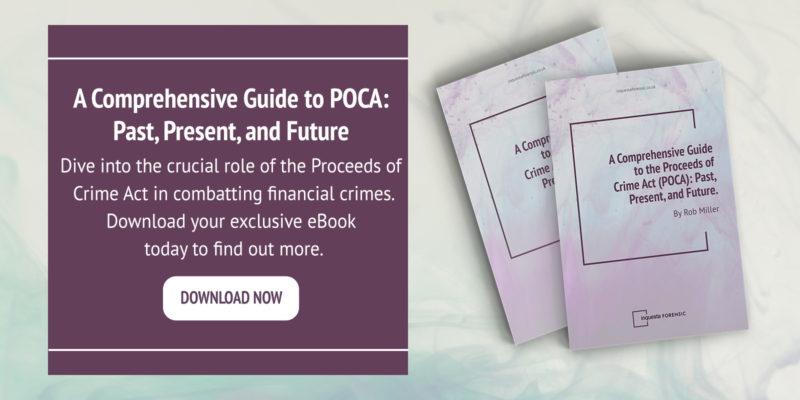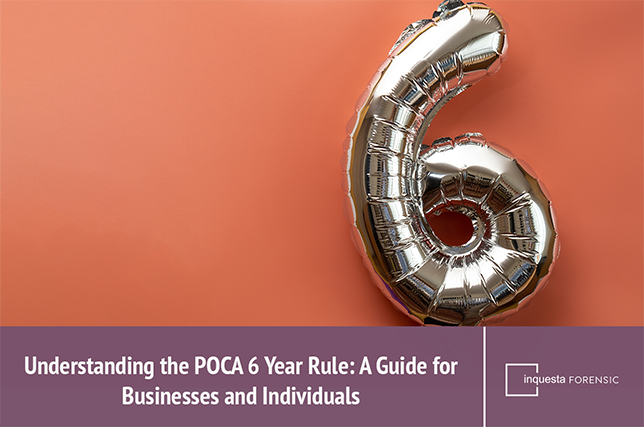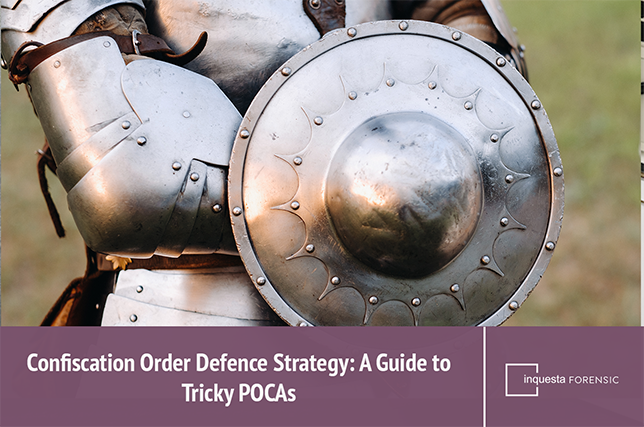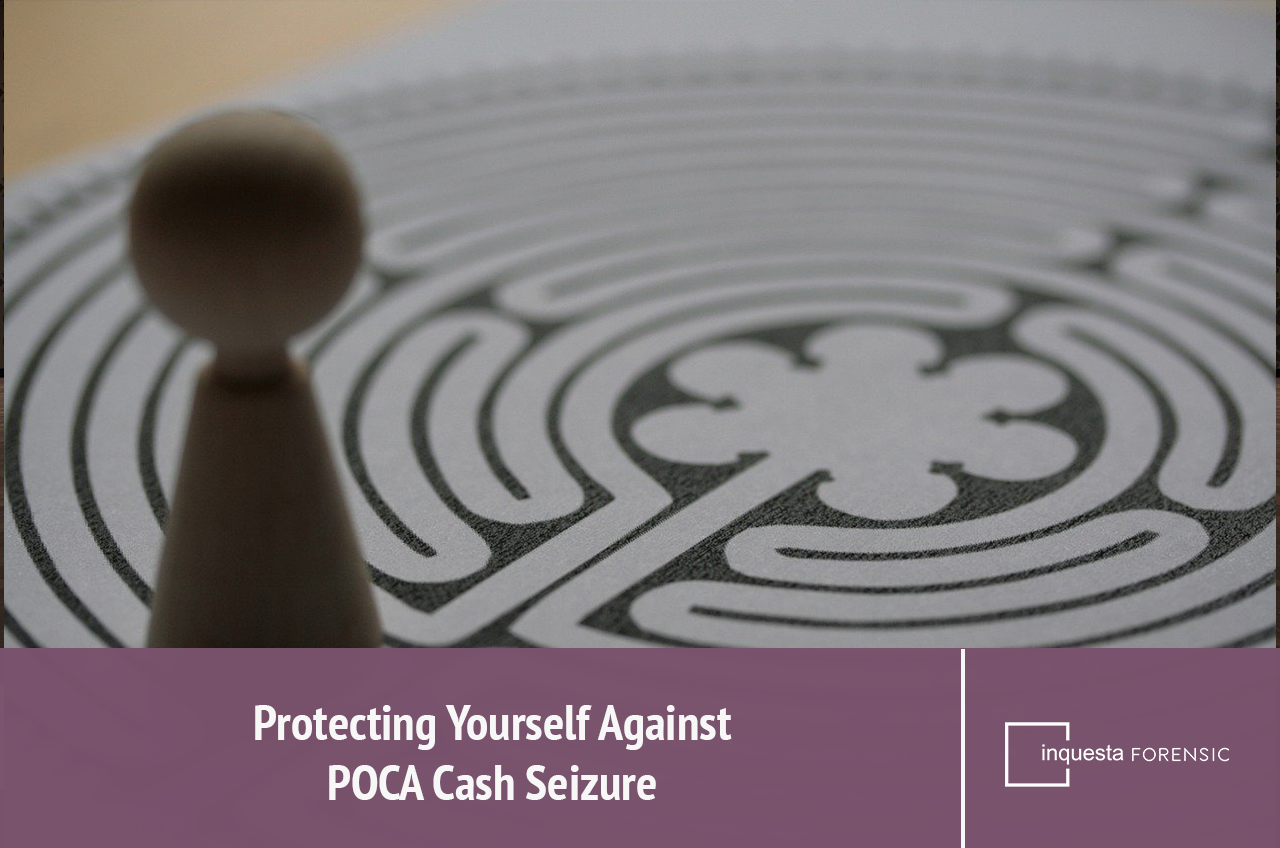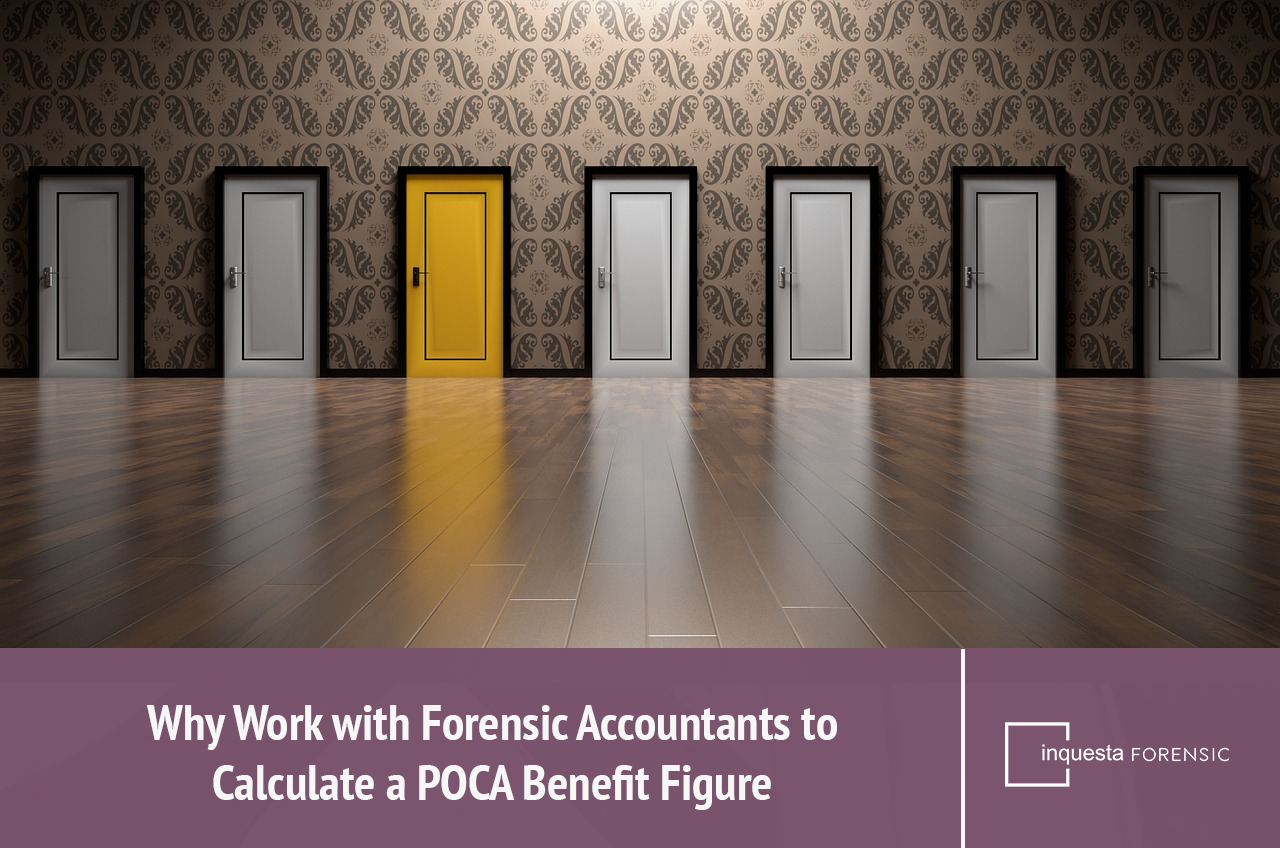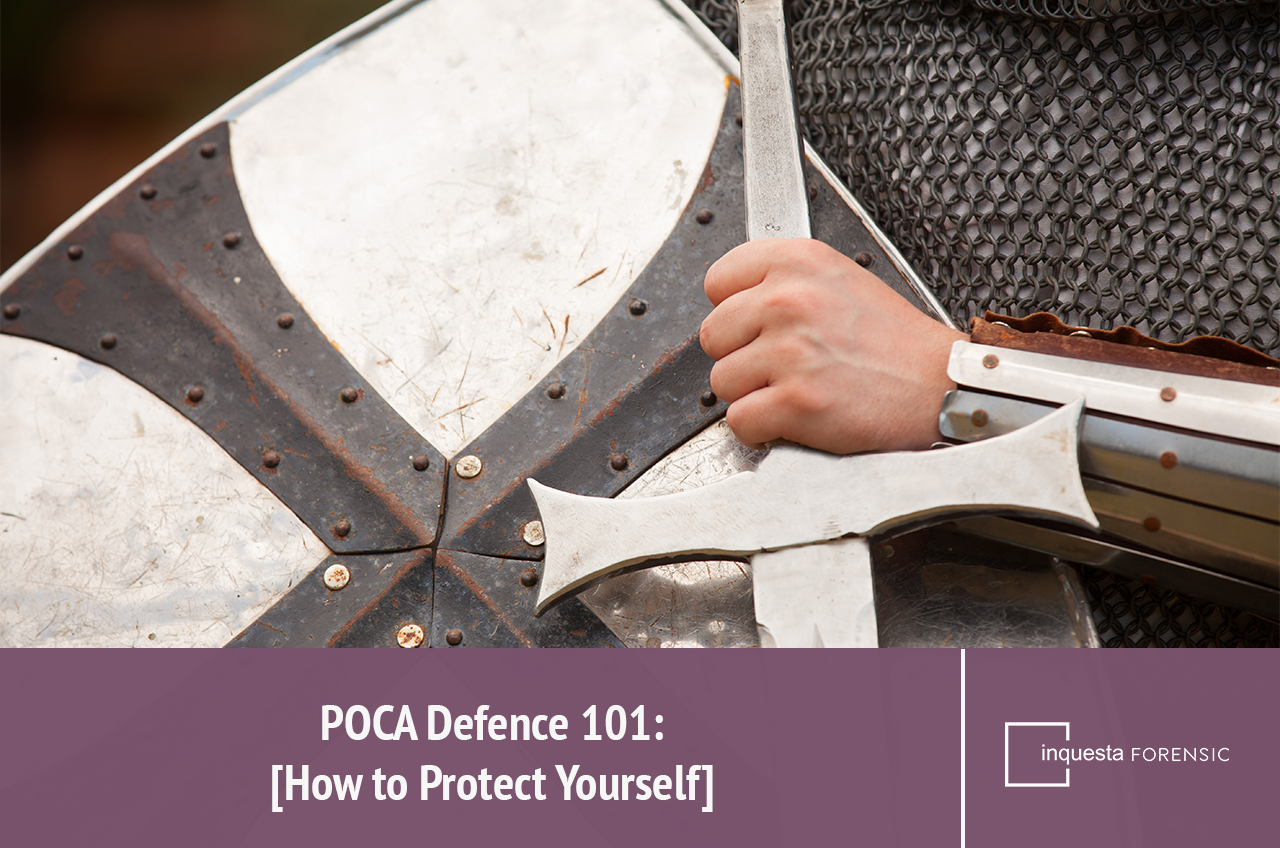What happens if you can’t pay POCA confiscation orders? If you don’t know the answer to this question, and ever find yourself in this position, you could leave yourself open to serious trouble that could destabilise your finances and affect your entire life.
In this blog we’ll discuss the intriguing topic of confiscation orders under the Proceeds of Crime Act 2002 (POCA). Join us as we delve into the legal intricacies and potential consequences when the scales of justice seek to recover ill-gotten gains.
Read on to secure your position and ensure that you’re protected should your situation develop.
What Are Confiscation Orders (POCA)?
As established under the Proceeds of Crime Act 2002 (POCA), confiscation orders are legal instruments used to recover the financial benefits gained from criminal activity. A confiscation order can pose serious concerns for an individual convicted of benefiting financially from a crime.
If a confiscation order is justified, a confiscation hearing will be held. This hearing will be separate from the ongoing criminal trial. The purpose of these proceedings is to address the finances involved in the alleged crimes.
During the hearing, the court will assess the benefit to the defendant from their crimes, while attempting to identify and value assets, and calculate the ‘recoverable amount’ that the defendant will be required to pay. The recoverable amount stated in POCA confiscation orders will be based on whichever is less out of:
- An amount equivalent to their criminal proceeds
- The value of their available assets
When a recoverable amount has been agreed on, the defendant will be legally obligated to make this payment.
To learn more about confiscation orders, read our blog.
How Does a Confiscation Order Work?
The process behind a POCA confiscation order begins at conviction. Once somebody has been convicted of a criminal offence with financial benefit, a confiscation hearing will take place to determine the recoverable amount. Once this amount is agreed, the defendant must pay the order by a set date.
The confiscation order process is as follows:
- Conviction: The very first step towards a confiscation order is the conviction of an individual for a criminal offence. To apply for a confiscation order, the defendant must be suspected of financially benefiting from their crime. Common offences that could apply for a confiscation order include financial fraud, cryptocurrency fraud, money laundering, and drug trafficking.
- Confiscation Hearing: Post-conviction, a totally separate confiscation hearing will be conducted in court. It is at this stage of the process that the financial benefit obtained by the defendant will be assessed. This will include identifying money, property, or any other assets gained through criminality.
- Recoverable Amount Determined: Before any payment can take place, the court must first calculate the ‘recoverable amount’. This is the total amount that the defendant is ordered to pay. The recoverable amount will typically be based on either the benefit the defendant saw from their criminal conduct, or their available assets (whichever is less).
- Payment Deadline Set: Following the confiscation hearing, the court will specify a deadline. This is the date that the defendant must pay the confiscation order. Any failure to meet this deadline could lead to additional legal issues.
The POCA confiscation order process is in place to ensure that criminals do not profit from their illegal activities. It is an attempt to deter any future criminal behaviour by removing the primary reason for committing these crimes — financial incentive.
The process itself is designed to efficiently and fairly reclaim any ill-gotten gains, and to ensure that anybody found to have benefitted from breaking the law is held accountable for their actions.
What Happens if I Can’t Pay my POCA Confiscation Order?
If you can’t pay a confiscation order (POCA), you could leave yourself open to potentially serious and far-reaching consequences. An individual unable to pay could be faced with accrued interest on top of what they already owe, forced seizure of assets, bankruptcy proceedings, and even prison time.
For anyone wondering “what happens if you can’t pay a confiscation order (POCA)? The following outcomes may be applied:
Interest Can Accrue
Just because you aren’t currently able to pay the amount owed does not mean that the process will stop. Any outstanding debt will continue to accrue interest until it is fully paid.
This means that your financial burden will continue to grow, making it even more difficult to settle your debt if you allow things to continue for too long.
Assets May be Seized
In scenarios where a person is unable to meet the payment requirements, the authorities may turn to forced asset seizure. This would involve getting a bailiff in to confiscate assets ahead of selling them to raise funds. Assets that could be seized include:
- Properties
- Vehicles
- Money held in bank accounts
- Any other valuable possessions.
Bankruptcy
If a person is unable to pay a confiscation order due to significant debts and financial difficulties, they may also face bankruptcy proceedings.
In this situation, their financial affairs would be managed by a trustee, and all assets can be used in order to satisfy the outstanding debts. Bankruptcy will also have significant financial and personal consequences for an individual in the long-term.
Contempt of Court
Active refusal to comply with the court’s orders, or any actions that could be considered to be obstructing the enforcement process, could result in charges being filed for contempt of court. This would bring with it additional legal/financial penalties.
Imprisonment
Likely the most significant consequence that can come from consistent failure to pay a confiscation order is the potential imposition of a default sentence.
Default sentences are prison sentences that can be added to an individual’s existing sentence. The length of a default sentence will vary depending on the amount left owed and the individual’s ability to pay. For example, a defendant refusing to pay when they have the means to do so may receive harsher punishment than those who are unable.
While one of the more severe punishments, default sentences act to deter and punish individuals for not complying with the court’s order.
How to Pay Confiscation Orders
There are multiple steps when wondering how to pay confiscation orders that should be considered. The most important thing to remember is that having an expert in your corner is an invaluable way to ensure the best result possible. You should also make sure to always remain open and honest, and remember that negotiations aren’t totally off the table.
Factors to consider when looking to pay a confiscation order are as follows:
- Seek Specialist Advice: It’s highly advisable that you consult with a legal professional as soon as possible. This expert should specialise in confiscation order (POCA) cases and be able to provide guidance on the legal process, potential defences you could employ, and what your best available options are.
- Remain Open: Consistent open and honest communication with authorities is absolutely vital. If you were to struggle to meet payment obligations for any reason, you must inform the relevant parties as soon as possible. There may be wiggle room with regards to repayment terms — the court does have the power to grant variations or extensions to the pre-agreed payment terms.
- Prepare for Asset Liquidation: It isn’t unheard of that assets need to be sold to meet payment obligations. This is because the proceeds of these sales can then be used to quickly satisfy the confiscation order. If this could apply to you, it’s important that you be aware of it in advance as asset liquidation can be a highly stressful time.
- Payment Plans: In certain scenarios, it could be possible to agree a payment plan with the authorities. A payment plan would allow you to spread your payments out over a prolonged period. This can be pivotal in making your financial obligations much more manageable. The full amount spread out over a longer period would be much better to the authorities than paying less than the full amount.
Dealing with — and getting to the bottom of — how to pay a confiscation order can be a complex and highly challenging process. Seeking expert advice is crucial to navigating the intricacies of this legal system in order to begin working towards complying with the court’s orders.
Can’t Pay a POCA Confiscation Order? You Need an Inquesta Forensic Accountant
In the intricate and often highly complex world of POCA confiscation orders, one group of experts stand out from the crowd for providing the most comprehensive guidance possible — forensic accountants.
The Inquesta Forensic team of accountants are experts in financial analysis. This skill is instrumental when it comes to determining the fair recoverable amounts and ensuring that the process is followed through fairly.
Our clients receive the expertise you would expect from a meticulous forensic accounting service. The guidance, professionalism, and unwavering commitment to justice our team offers is an invaluable resource for anybody facing the challenges of POCA confiscation orders.
As you continue to dive into the world of confiscation orders, remember that building up a greater understanding of the process, and seeking guidance from somebody you can trust, can make all the difference.
Fighting POCA confiscation orders can be a challenging road, but with the right support and knowledge, you can ensure complete compliance with the court’s orders and, in the process, ensure that justice prevails.
Inquesta Forensic Accountants are here to help. Contact us today to find out more!
- Your Partner’s Been Convicted: Can They Take Your House? What Section 10a POCA Means For You
- The Essential Role of Forensic Accounting in High Net Worth Divorce
- How to Value a Startup Business: A Guide for UK Entrepreneurs
- Pig Butchering Scams: Guide to Crypto Romance Fraud
- Shareholders’ Disputes: How Business Valuation Helps with Shareholder Dispute Resolution



